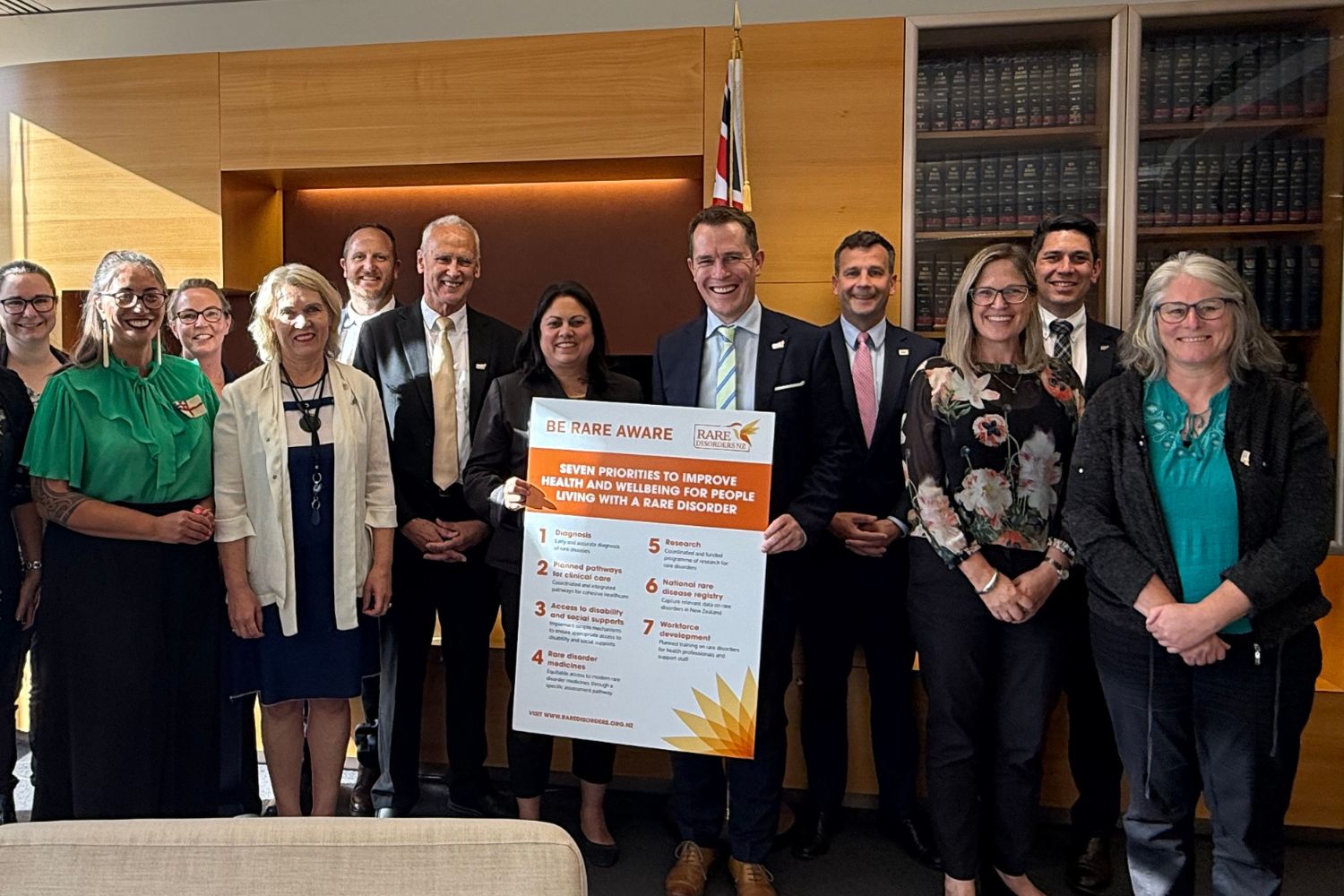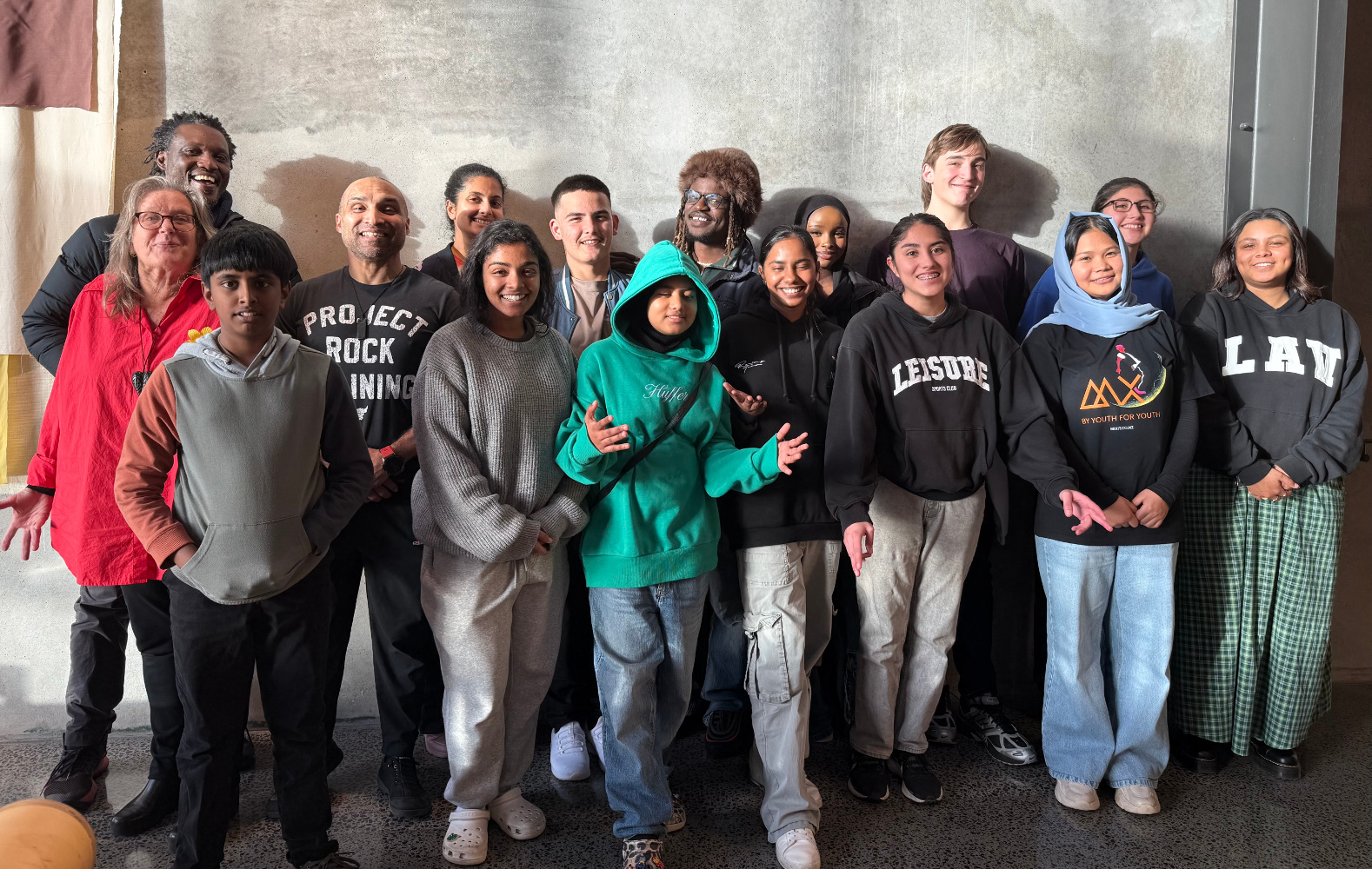The More than One Club
August 19, 2020

Leo and Tiffany work hard. Despite living with Down syndrome, vision impairment, hearing impairment, some orthopaedic issues and speech challenges, their parents expect them to go far in life. This brother and sister are getting life changing opportunities to continue developing their speech and communication skills through the UpsideDowns Education Trust.
We are a conspicuous family, and we hardly ever mind it. There’s me and Dan, ‘older parents’ who immigrated here to New Zealand from the US years ago; Leo and Tiffany, ages 8 and 10, both Chinese, both who have Down syndrome, each with their own delightful idiosyncrasies; and Caz, our Disability Assist Wonder Dog.
We get a lot of questions about Caz, who is allowed to go wherever we go, including restaurants, airplanes and hospitals. We also get a lot of questions about adoption or immigration or school or our jobs, and as long as the questions are respectful, not too intrusive and the kids don’t mind stopping to meet and interact with people, we’re always happy to answer them.
Another thing that makes our family unique is that we all use a variety of strategies to communicate between ourselves and with others. We don’t just stick to your standard variety speech-type of communication. We use New Zealand Sign Language (NZSL), a bit of Makaton (a language programme that uses signs and symbols to support spoken language), lots of gestures, communication devices and, of course, some verbal speech.
These alternative methods of communication are needed by our family because Leo and Tiffany both struggle with speech, which is a typical trait in those who live with Down syndrome. Speech can be difficult for children and adults with Down syndrome for a number of reasons including low muscle tone, smaller than typical mouths, hearing loss and the tendency to have atypical speech patterns, as well as the inability of many nondisabled people to listen carefully to what is being said.
From the time our children were infants we knew communication was going to be a priority for the success of their education. The ability to communicate well with others will allow them a good quality of life and assist in their ongoing cognitive and social development.
We embarked on the mission to get our children the best possible services related to speech and communication. And it turned out to be a challenging one.
The only speech therapy they could access as babies was for feeding issues, and while early childhood services provided sporadic consultative services, nobody would provide one-on-one therapy for communication. So Dan and I attended every child communication course available and we learned Makaton and NZSL through night classes. We discovered plenty of people were happy to talk to us adults, but nobody would work with our children! The Ministry of Education have superb speech therapists, but they are not supported to work one-on-one with children. They have a mandate to provide a ‘consultative’ service, which means they teach parents, who in turn teach children. In theory this has some logic. But research shows that, in practice, consultation models work well only if in combination with direct services.
We could not, in good conscience, let our children go without speech therapy, so when we eventually heard that there was funding available through the UpsideDowns Education Trust, we were so relieved. Leo and Tiffany needed to be given the best shot at being good communicators, which we see as being the ticket to future jobs, friendships, relationships and being involved citizens.
It was simple, considering the years we had battled to get services for our children. We applied to the Trust and were accepted, and found an approved, registered speech therapist who had experience with children with Down syndrome. We hit the jackpot.

Over the past seven years we have had three experienced, qualified, creative private speech therapists work with our children. Each has brought their own unique set of talents and assisted Leo and Tiffany in various ways. They have visited us and provided therapy to our children together and individually. They have worked with our children at home, at their babysitter’s home, at their early childhood centre and at their schools. Some have travelled quite some distance to work with our family and we have also travelled long distances to meet with these professionals who hold a place dear in our hearts.
Some of the therapists have emphasised speech production, others have emphasised holistic communication, using sign language and communication with symbols and speech. And currently, our beloved speech therapist is helping our children to use their augmentative speech devices: iPads with speech programmes that allow the children to clarify what they are trying to say with the help of electronic assistance.
We could not have had this essential education for our children without the help from UpsideDowns.
And it’s working! Leo is now reading out loud to us and Tiffany has become a chatterbox. She is speaking in complete sentences and we are able to understand more and more of what she says. We are delighted.
Parents now have much higher expectations for children with Down syndrome. We expect they will learn throughout their lives, long into their adult years. We expect them to live as independently as possible, to work and earn money in meaningful jobs and to have friendships and meaningful relationships – maybe even marriage. We expect them to contribute to their communities.
With these expectations we have a commitment to contribute to their education, to their world view and their sense of justice and of community. We have to do our part. Ensuring they have ongoing opportunities to improve their communication skills and their speech is something we owe our children. With the help of UpsideDowns we have been able to hold up our end of the bargain.
And for this we are very, very grateful.
Words by Gretchen Good (Leo and Tiffany’s mum). Gretchen is a Senior. Lecturer with the School of Health Sciences at Massey University. Images kindly supplied.
Support UpsideDowns with your 1%
Fund 5 months of speech language therapy for a child with Down syndrome with just 1% of your annual income. For the average Kiwi, that's only $10 per week. Support UpsideDowns with your 1%.



